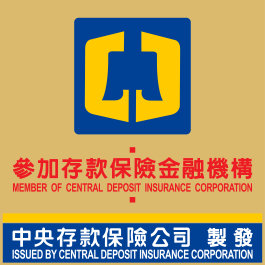
For the best experience, change the screen to portrait mode.
:::
Introduction of Trust
What is Trust
- The term of “Trust”, according to Article 1 of the Trust Law: “For the purposes of this Law, the term "trust" refers to the legal relationship in which the settlor transfers or disposes of a right of property and causes the trustee to administer or dispose of the trust property according to the stated purposes of the trust for the benefit of a beneficiary or for a specified purpose”. In other words, trust is a diverse financial management system, and the asset owner can transfer or set up asset to an administrator in order to allow the administrator to manage or dispose the property for the benefit or purpose of a certain party in order to achieve the functions of property protection, asset appreciation and tax saving etc. at the same time. The following provides explanation on several criteria of trust:
- Transfer or other disposal of trust property: The first criteria of establishing trust is that a settlor needs to transfer the property right or other disposition to the trustee. The subject matter or object of trust, i.e. referred to as “property right”, needs to be a right that its value can be calculated in monetary method, and it includes all types of real right, creditor's right, such as cash, stock, real property etc., and patent right, copyright and other intangible rights, as well as mineral right, fishing right etc., are all property rights, can be used as a subject matter for trust. The term “transfer” refers to direct change on the property right, such as trust and transfer a real property to be registered under the trustee. The term “other disposition” refers to the setting of usufructuary right or security interest of property right, such as setting a superficies right, mortgage of a real property to the trustee.
- Management or disposition of trust property: The second criteria of trust refers to the trustee performs management or disposition of the trust property according to the purpose of trust. The purpose of trust is to not only allow the beneficiary to enjoy the trust benefit but also realize the settlor’s will in the trust of property management and disposition. For example, a settlor trusts his or her computer equipment to a trustee, and specified that the management method is only to rent out the equipment without sale, then if the trustee sell the equipment to a third party, it would be a breach of the principle of the trust, and according to Article 18 of the Trust Law, the beneficiary may revoke the disposition made by the trustee.
Trust Related Parties
- Settlor: Refers to the party providing property for the establishment of trust.
- Trustee: Refers to the counterparty of the trust established by the settlor, and accepts the transfer or other disposition of the trust property from the settlor. In terms of the legal aspect, trustee becomes the nominal owner of such property, and shall bear the obligation to perform management or disposition of the trust property according to the purpose of trust.
- Beneficiary: Refers to the party that the settlor wishes to allow it to enjoy the trust benefit or to be the successor of the rights. In other words, it refers to the party enjoying the right of benefit or the successor for all or a portion of the trust property and benefits managed or disposed according to the purpose of trust.
Advantages of Establishing Trust
- Trust property is of independence and security: Trust property is protected by the “Trust Law”, such that it is not subject to the compulsory execution or offset of debts not belonging to the trust property exercised by creditors of the settlor, trustee and beneficiary; therefore, it allows the property of the settlor to be protected from any special circumstances.
- Property fair distribution: Settlor can use trust contract to determine the ratio of the benefit distribution of all beneficiaries, and under the rigorous execution by the trustee, it is able to prevent problems of property distribution arising from complicated family members.
- Enjoying legitimate tax saving: For the traditional gift method, each person has a certain quota of gift limit with tax exemption each year (currently, the limit is NTD 2.2 million), and for the excessive part, gift tax is required to be paid. However, through trust, the gift of partial trust benefit right under the Estate and Gift Tax Act can be applied in order to use the principle of equivalent cash amount calculation method to reduce the gift total amount, thereby achieving the effect of minimizing the tax payable for the property transfer.
- Retention of property control right: After property is trusted, the settlor still retains the trust property use decision right, and according to the contract the settlor may terminate the trust contract at any time in order to retrieve the trust property, such that it is able to prevent the concern of improper use of property by children after providing the property to children as gifts.
- Care to survivors: Through the planning of trust, the property of the settlor can be planned according to the will of the settlor in order to allow the trustee to manage the property according to the agreement and to distribute to the family and generation of the settlor.
- The design of trust is of flexibility, and our bank provides professional management: Chang Hwa Bank with a history over a century long, along with professional trust team, is able to provide a one-on-one premium VIP customized service to you. In addition to diverse domestic and overseas fund investment services, we are able to provide customized services to you, including: personal trust services of securities trust, insurance trust, real property trust, nursing and care trust etc., in order to satisfy your financial management needs at any stage, in light of enriching your fortune live.
- Shall you have any questions, please contact Trust Division at (02)2536-2951, Ext. 2210~2216
.png)



